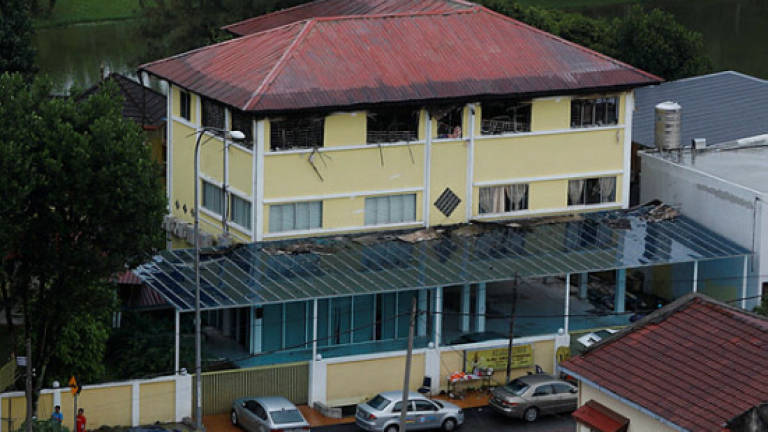Tahfiz fire suspects can't be tried as adults: Bar Council

PETALING JAYA: The suspects in the tahfiz fire case cannot be tried as adults, said Bar Council president George Varughese.
He told theSun that under the Child Act, anyone below 18, will be regarded as a child.
"The Child Act bars the sentence of death, if one has committed an offence whereby the death penalty can be imposed, if they are below 18, by virtue of Section 97 of the Child Act 2001. The person will be detained at the pleasure of his majesty the King," he said via WhatsApp.
On Thursday, 21 students and two teachers of the Darul Quran Ittifaqiyah tahfiz school were killed in a fire that engulfed the building.
"However, the suspects will not be tried in a child court because it involves an offence punishable with death.
"They will be tried in the ordinary High Court but not as adults, the procedures of the Child Act and the governing sentences under the Act will apply (Section 90)," he added.
But criminologist and psychologist from the forensic science programme of Universiti Science Malaysia, Dr Geshina Ayu Mat Saat, told theSun that an underage offender as young as 10 years old can be charged for murder under Section 302 of the Penal Code.
"These youths are presumed to be criminally responsible only if they have the required maturity. Assessment of maturity is left to the judge.
"In the case of the tahfiz fire, there is evidence of forethought like planning, obtaining materials to be used in the criminal act, conducting practice trials. This shows intent," she said.
When asked about the effects of marijuana on children, she said the effects would differ depending on the basis of first use, age, weight of user, amount ingested and the form of marijuana ingested – liquid, smoke, powder or crystal.
"The effects are both short and long term and may be more acute compared to adults who ingest similar drugs," she said.
Geshina also said there are a number of reasons for the teenagers to have acted so drastically.
"Namely, having a pro-criminal attitude that are more likely predisposed to violent retaliations, living or being exposed to negative lifestyles where violence is seen as the answer to solve disputes or conflicts, lack of empathy, devil-may-care attitude, having negative role models, sense of injustice, and group mentality that supports and prompts violent behaviour," she said.